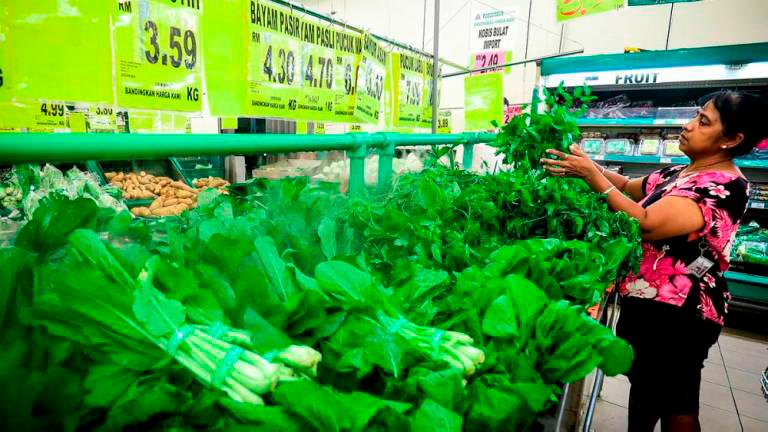PETALING JAYA: There is more to being a vegetarian or vegan than meets the eye. While many tout its health properties, less extolled yet equally significant are the benefits to the environment.
Food production, whether meat or vegetables, produces greenhouse gases along its entire supply chain – from cultivation or breeding to the dinner plate. But, according to environmentalists, the damage caused by meat production far outweighs that of greens.
More than just switching to an all-vegetable diet, reducing consumption is another way to reduce damage to the environment, according to environmental consultant Amlir Ayat.
“Yes, we should eat less meat and more vegetables, but it also helps to eat just the right amount,” he told theSun. “Another way to ease the strain on the ecosystem is to raise your own livestock and plant your own vegetables.”
Amlir was commenting on a report out of Paris that said plant-based foods are kinder to the environment. According to the report, animal farming produces twice as much greenhouse gases as plants cultivation.
Amlir estimated that the world now produces 340 million tonnes of meat for human consumption each year, most of which land on dinner plates in developed countries.
He pointed out that everything consumers purchase, including food, contributes to greenhouse gases.
Greenhouse gases are produced along the entire supply chain from land clearing and production to packaging and transport, he said.
Amlir pointed out that consumers are as much to blame as producers. “Our demand pushes the industries to produce more, thereby causing even more harm to the ecosystem.”
He said research has shown that agricultural activities and their by-products account for 12% of the world’s methane emission, or a quarter of all anthropogenic or organic global warming.
He noted that veganism and vegetarianism are recent practices and it is impossible for the human race to stop consuming meat even in the next 100 years.
President and chief executive officer of the Ecotourism and Conservation Society Malaysia Andrew J. Sebastian said it has been scientifically proven that vegetarians have a lower impact on the environment than meat eaters.
“I believe people should start to change their eating habits. For instance, they can avoid eating meat for a day in the week,” he told theSun.
Sebastian said not nearly enough has been done to make the food industry more environmentally friendly. “For instance, in the padi fields, once the harvest is done, the farmers burn the stalks to prepare for the next crop. Such a practice must be stopped,” he said.
Former president of the Malaysian Vegetarian Society Dr Vythilingam Pillay said animal husbandry produces twice as much carbon as the cultivation of crops.
“For instance, a 1990s study showed that whole forests in Central America were turned into land for grazing cattle. It is still being practised in the Amazon,” he told theSun.
He pointed out that more land was also needed to cultivate crops such as corn and wheat to feed livestock that would end up as food for humans.
Vythilingam said livestock such as cattle produce methane and nitrates that pollute air and water. “If ingested in excessive amounts, nitrates will cause irreversible nerve damage and cancer,” he said.
Depletion of water is another reason to go meatless. It takes 45,000 litres of water to produce 1kg of beef but only 230 litres to produce 1kg of wheat, he said.
He suggested people reduce their daily consumption of meat to 10% of total calories equivalent to help reduce greenhouse gases.















